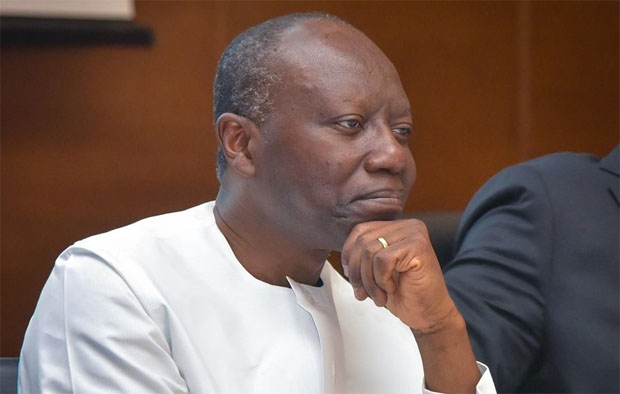Ken Ofori-Atta
Minister of Finance, Ken Ofori-Atta, has laid out why he thinks the Electronic Transfer Levy Bill should be passed into law.
He has therefore, called on citizens to have their Members of Parliament (MPs) back the legislation which, according to him, aims at widening the tax net and roping in the informal sector as part of the “burden share” to develop the country.
According to him, the Electronic Transfer Levy, popularly known as E-Levy, remains a debt sustainability safety net for Ghana, arguing that it is critical for lawmakers to pass it to protect Ghana from continuous debt accumulation.
Speaking at the closing ceremony of the 73rd University of Ghana Annual New Year School and Conference in Accra on Wednesday, Mr. Ofori-Atta called on the citizens to hold him accountable for the revenues that will accrue from the E-Levy once the legislation is passed and the tax is implemented.
He reiterated that the time was ripe for the citizenry to carry their fair share of the burden to develop the country through the payment of proposed tax, noting that E-Levy would help increase revenue as Ghana moves into an e-commerce economy.
The Finance Minister said the proceeds from the proposed tax would be used to invest in debt sustainability, infrastructure development and youth entrepreneurship.
“What I was expecting was for Parliament to say, we’re going to get GH¢6.9 billion from this new tax revenue measure. So how then do you (Finance Minister) report to me (referring to Parliament) on a quarterly basis on the uses of the fund and its application so that we move on,” he indicated.
The government has been holding town hall meetings to explain to the citizens the E-Levy and its benefits in addressing Ghana’s debt stock without compromising on infrastructure developments.
Mr. Ofori-Atta explained that the 1.75%, which Ghanaians said was high, had been reduced by 0.25%, whereas the telecommunication operators had also agreed to absorb 0.25% of their charges to ease the impact on Ghanaians after the government’s engagement.
“You go to the issue of 1.75 per cent E-Levy, and people will say that’s too high even though we exempted transfers of less than a GH¢100. The arguments were coming fast and furious, and we had to listen and reassess that in terms of the impact of the 1.75%,” he noted.
He continued, “We were able to come down by 0.25%, which means that the impact will go down for the average Ghanaian,” and added that the government would still be able to retain revenues needed for the three targeted areas of debt sustainability, infrastructure build-up and “ensuring that our YouStart programme becomes a standard in our socio-economic development.”
“At the end of the Annual New Year School, it was recommended that the government introduce innovative ways of mobilising domestic revenue and cut down on unnecessary expenditure and wastage in the public sector,” he posited.
By Ernest Kofi Adu


